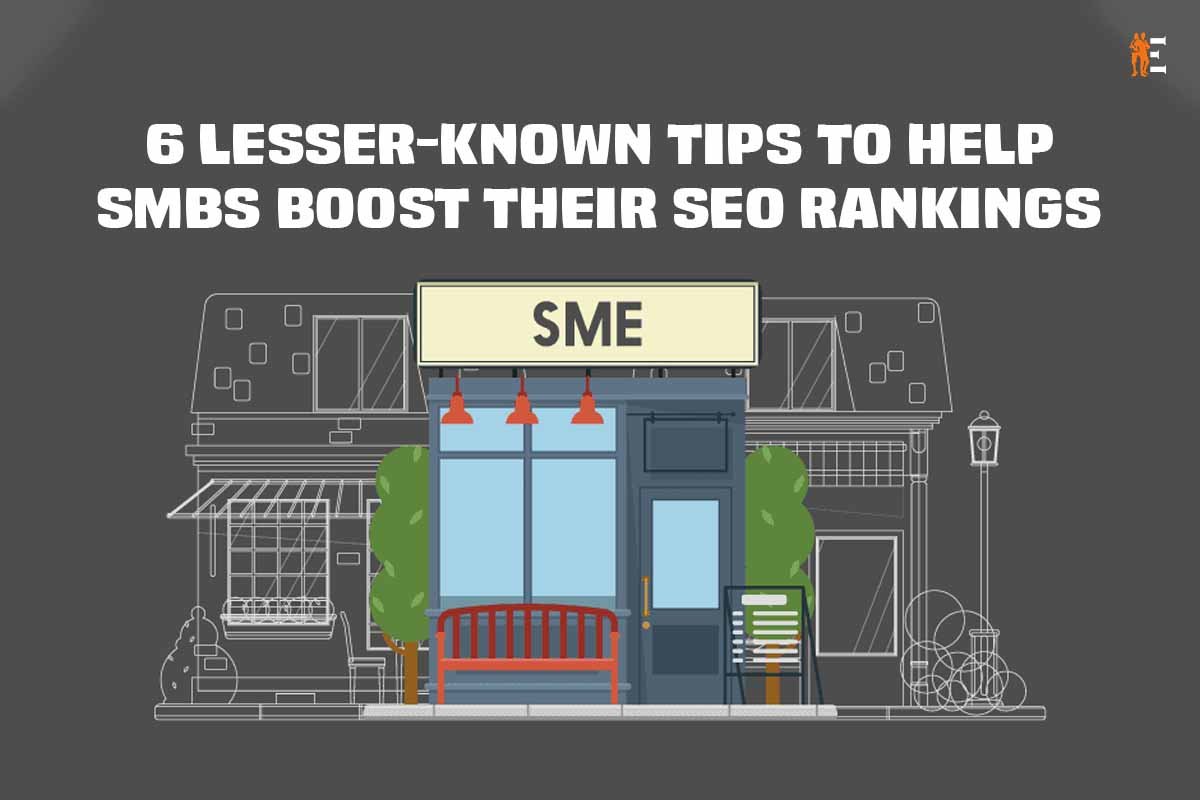Search engine optimization (SEO) is used by less than twenty percent of small companies, despite the fact that more than ninety percent of online activities start with a search engine such as Google or Bing. Because of this, search engine optimization (SEO) for small companies is not something that can be ignored by small-to-medium sized enterprises (SMBs).
Here Are Some Tips For SMBs To Boost SEO Rankings:
1. What exactly is SEO?
Search engine optimization, more often referred to as SEO, is an umbrella term for a collection of techniques that may boost your website’s visibility in the search results provided by Google, Bing, and other search engines.

Your firm will be able to connect with individuals who are a part of your target audience when they are seeking for you if it has a higher visibility in the relevant search results.
2. How does SEO work?
When it comes to search engine optimization (SEO), the most essential tips for SMBs to boost SEO rankings on a website is to develop high-quality content that responds to the search queries entered by your target audience. This is because users of search engines like Google are provided with results that are of the greatest quality and most relevant to their queries possible. You have a broad selection of options at your disposal for ensuring that the material you create satisfies those requirements.
3. Several Variations of SEO
There are also many tips for SMBs to boost SEO rankings, each of which is best suited to certain kinds of organizations and the customers they serve. Searches that include the term “near me” fall within the purview of local search engine optimization (SEO), which focuses on results that are relevant to a certain geographic area. Local search engine optimization (SEO) helps your website appear in response to these kinds of queries, which in turn brings local customers to your establishment.
4. What advantages can Search Engine Optimization (SEO) provide to small businesses?
No matter how large or small, any company may benefit from implementing an SEO strategy as part of its internet marketing plan. These can be good tips for SMBs to boost SEO rankings. It’s difficult to argue against the importance of search engine optimization (SEO) when you consider that over 80 per cent of consumers and over 70 per cent of corporate purchasers begin their product research with a search engine.
Because of this, practically all marketers consider search engine optimization to be a successful technique. When compared to the relevance of SEO for big organizations, the significance of SEO for small enterprises becomes more apparent. With search engine optimization (SEO), you have the opportunity to present your company to completely new customers by appearing in relevant search results that are not dominated by well-known brand names. You also have the opportunity to record local searches, of which 80 percent result in a conversion.
When Google knows the precise location of a user, it is more likely to deliver search results that are relevant to that person’s location rather than global results. For instance, if a user based in Philadelphia does a search on Google for “coffee shops,” the search engine will not display results for coffee shops located in Dallas, Texas; rather, it will display results for coffee businesses located in the user’s immediate vicinity.
A high ranking in the local search results achieved via the use of local SEO methods is an effective method for bringing in new clients. It is not necessary for you to have financial difficulties in order to purchase advertising space in a magazine or on a billboard. It does not cost you anything when visitors click on your website in the search results.
5. Optimize your site for local search results:
Be sure to mention your city and state in the title tags, meta descriptions, and content of your website. This tips for SMBs to boost SEO rankings. Additionally, you should register your company with Google My Business and check to be that all of the information it contains is correct and up to date.
1. Use long-tail keywords

Instead of focusing on ranking for broad keywords that have a lot of competition, you should concentrate on ranking for long-tail keywords that are more narrow and have less competition. These keywords tend to have a more specific target audience, which generally results in greater conversion rates.
2. Create useful content:
Google gives more weight to websites that provide readers with material that is useful and instructive. Be sure to constantly update your website with fresh information that is of a high quality and is relevant to the audience you are trying to attract.
3. Build backlinks
Backlinks are an extremely important component in establishing the search engine rating of a website. You should either make contact with other websites in your field and ask them to link to yours, or you should generate material that is so useful that others will want to connect to it.
4. Optimize for mobile
Because more and more people are connecting to the internet via their mobile devices, it is essential to ensure that your website is mobile-friendly and easy to navigate on these devices. This implies having a design that is responsive and a loading time that is quick.
5. Promote your website via the use of social media:

Promoting your website on social media sites such as Facebook, Twitter, and LinkedIn may be an effective strategy to bring in more visitors to your website. Make use of these channels so that your audience can interact with your material and share it.
BOTTOM LINE
In conclusion, you should optimize your website for local searches, make use of long-tail keywords, generate content that is useful, establish backlinks, optimize your website for mobile devices, and promote your website on social media. These are some SEO strategies that aren’t as well recognized but may assist small and medium-sized businesses improve their rankings.











